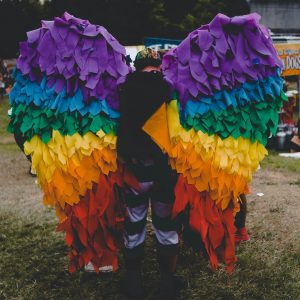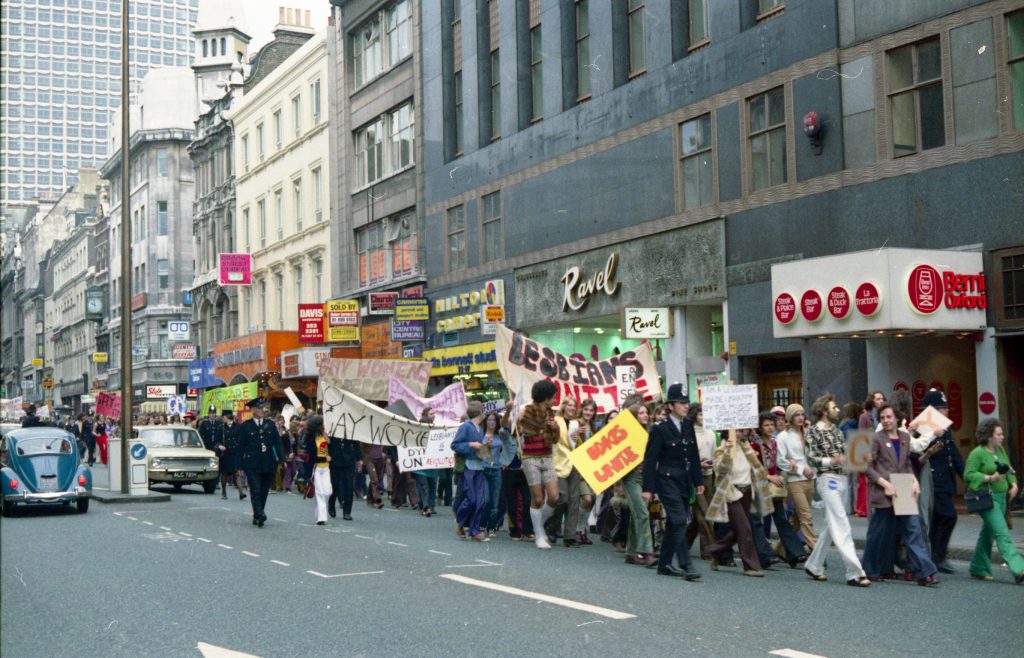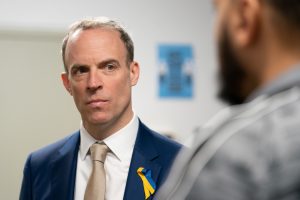1 Jul 2022 | Opinion, Russia, Ruth's blog, United Kingdom
Index on Censorship was launched in the early 1970s. In theory the world was a very different place, but in recent days the news does feel a little like déjà vu.
Fifty years ago, the world was split into two main camps – the West and the Soviet bloc – with a Cold War dominating geo-politics in the hope of preventing a hot war.
In 1972 the inflation rate in the UK was 7.13%.
The wider economic situation in Britain led to significant industrial action, with 23,909,000 working days affected in that same year.
China was still diplomatically isolated – although 1972 saw the first public efforts of engagement with the West, when President Nixon visited Beijing.
Back in the US, women were demanding rights over their bodies, with Roe vs Wade being upheld by the US Supreme Court the following year.
As Mark Twain said: “History doesn’t repeat – but it does rhyme.”
I really want to believe that as democratic societies we are on a progressive arc – that governments, and more importantly their electorate, over time becomes more liberal, more tolerant, and more enlightened. That is after all why I am an advocate of freedom of expression – the more people can debate and engage and argue, the better our collective societies become.
The events of 2022, so far, are challenging this core belief. And it would be easy to roll over and believe that the end is nigh. But we can’t and we won’t. I believe in people – I believe in the power of politics and most importantly I believe that our core democratic values overcome tyranny.
But there is one thing that we need to embrace as the world seems bleak. Nothing happens in isolation and our core values are not things that we can be complacent about.
Democratic leaders let our global institutions atrophy – our post-Covid world is a direct consequence of failing to invest in the global post-war institutions which we established to protect international law and to provide a place for global diplomacy.
The attack on women’s rights in the US hasn’t happened by accident, it’s a consequence of people voting – or not voting. Turnout in the 2016 general election in the US was less than 60% and that gave us Donald Trump.
So, there is a lesson to be learned from what is happening in democratic societies across the world – and that lesson isn’t to walk away, it is to get more involved. It’s to demand more and to demand better of those that seek to lead us. It’s to exercise every campaigning option that is given to us and protected for us by our rights to freedom of expression. And, most crucially it is to make a stand against those politicians that seek to cultivate hate and division – because their success leads to attacks on our core human rights – including what we do to our own bodies.
24 Jun 2022 | Opinion, Ruth's blog, United Kingdom

Photo: Gage Walker/Unsplash
Pride is protest. Pride is celebration. Pride is defiant.
Next month marks half a century since the first official Pride march was held in London. An event that Peter Tatchell has written about for Index in the next edition of the magazine. As Peter states:
“The idea spread to the UK, and a group of us in the Gay Liberation Front in London came up with the idea of holding a celebratory and defiant “Gay Pride” march, to challenge queer invisibility and the prevailing view that we should be ashamed of our homosexuality. The ethos of Pride was born.”
Pride was never designed to be apolitical – it was a statement. It was a demand for public acceptance at a time when being LGBT+ wasn’t just difficult – it was almost impossible to be openly queer in public. It was to a personal platform for those who were being silenced in their own communities. It embodied our collective basic right to free expression and used that right in such a way that it began a journey of changing hearts and minds.
Given how much society has changed since the first parade was held on 1 July 1972, it seems easy for some to believe that Pride is no longer an act of protest or defiance. Instead, it is now a family-friendly event. And of course, it has evolved since it was first launched – from a march of 2,000 people to a parade and a festival of over a million people with associated events throughout the country. It is no longer the obvious protest it once was, and it is a celebration of diversity and inclusion – but at its heart it remains the annual embodiment of a protest movement and we should never forget that.
Over the last 50 years Pride has been one of the most political movements in the UK. Pride campaigned against police harassment, it stood in solidarity with the striking miners in the 1980s, it campaigned against Section 28 and demanded support for people with HIV. And this year a theme won’t just be a celebration of the last 50 years – it will also be a moment to demand that the ban on conversion therapy includes therapy targeted at trans people.
Because Pride is protest.
Which brings me to my own experiences of Pride this year. I love Pride, I love the atmosphere, the chat, the protest and the music. At this year’s Pride there was a protest within a protest – targeted at some of the local politicians for their views on conversion therapy. I wasn’t surprised by the protest but rather the political response to it – “Pride is a family event, this isn’t the place for a political protest”. This lack of historical understanding should worry us all.
Because if nothing else this response demonstrated how quickly people forget societal history. How easy it is to forget why free expression is so important. Because it protects the voices of every minority group. Because it allows each one of us to have a minority opinion and to be protected when we articulate it. Because freedom of speech is one of the foundation stones of every positive change that has happened in our society. It has given every campaigner, every disenfranchised group, every equality campaigner the right to demand change.
Freedom of expression is the cornerstone of Pride, it’s the key tool which facilitates activists – through peaceful protest – to demand better from their leaders, to demand change, to empower people.
Bayard Rustin, one of Dr Martin Luther King Jr’s closest advisers and the organiser of the March on Washington, wasn’t only a civil rights leader, he was a gay civil rights leader and remains an inspiration today. When asked about his activism he said: “We need in every bay and community a group of angelic troublemakers”.
Last weekend I saw a group of angelic troublemakers at work and I was proud of them.
Because this isn’t just my personal mantra for Pride – it’s my mantra for life. I aspire to be an angelic troublemaker – as should we all.
23 Jun 2022 | News and features, United Kingdom, Volume 51.02 Summer 2022, Volume 51.02 Summer 2022 Extras
Britain’s first LGBT+ Pride march took place 50 years ago, on 1 July 1972. What began as one event in London has since grown into more than 160 Pride events across the UK – from big cities to small towns. Pride has also spread to more than 100 countries, making it one of the most ubiquitous and successful global movements of all time.
How did it all begin?
After the Stonewall uprising in New York in 1969 – when the patrons of gay bars fought back against police harassment – the newly-formed gay liberation movement in the USA decided to organise protests to coincide with the anniversary. The idea spread to the UK, and a group of us in the Gay Liberation Front in London came up with the idea of holding a celebratory and defiant “Gay Pride” march, to challenge queer invisibility and the prevailing view that we should be ashamed of our homosexuality. The ethos of Pride was born.
This was an era of de facto censorship of LGBT+ issues. There was no media coverage of homophobic persecution, no public figures were openly LGBT+ and there were no positive representations of queer people. The only time we appeared in the press was when a gay person was arrested by the police, murdered by queer-bashers, outed by the tabloids, or exposed as a spy, child molester or serial killer.
This is why a Pride march was necessary: to show that we were proud of who we were. But a march was a gamble. Would anyone join us?
Back then, most LGBTs were closeted and dared not reveal themselves publicly, fearing police victimisation. Many aspects of same-sex behaviour were still a crime, given that homosexuality had been only partially decriminalised in 1967. Some were afraid that coming out publicly would result in them being queer-bashed, rejected by family and friends or sacked by homophobic employers.
But, much to our surprise and delight, about 700 people turned out for the first UK Pride in 1972. It was a joyful, carnival-style parade through the streets of London, from Trafalgar Square via Oxford Street to Hyde Park.
We had a political message: LGBT+ liberation. Our banners proclaimed: “Gay is good” and “Gay is angry”. Despite heavy policing and abuse from some members of the public, we made our point.
Buoyed by this first modest success, we had the confidence to organise further Pride marches in the years that followed. They had explicit political demands such as an equal age of consent, an end to police harassment and opposition to lesbian mothers losing custody of their children on the grounds that they were deemed to be unfit parents.

Peter Tatchell in 1974
For most of the 1970s, Pride remained feisty but tiny, with fewer than 3,000 people. However, by the mid-1980s the numbers marching rose to 12,000.
Then we were hit with a triple whammy. First came the moral panic of the Aids pandemic. Dubbed the “gay plague”, it demonised gay and bisexual men as the harbingers of death and destruction. Next the prime minister, Margaret Thatcher, attacked the right to be gay at the 1987 Conservative Party conference. And then, in 1988, Section 28 became law, prohibiting the so-called “promotion” of homosexuality by local authorities – the first new homophobic law in Britain for a century.
The LGBT+ community felt under attack – and we were. It brought us together and mobilised a fightback which was reflected in the turnout for Pride in 1988, with 30,000 marchers compared with 15,000 the year before. The march was angry and political, with some people attempting to storm Downing Street.

The first ever Pride in London, 1972. Photo: Jamie Gardiner
From 1988, Pride grew exponentially year on year. By 1997, there were 100,000 people on the march and the post-march festival on Clapham Common was attended by 300,000 revellers. This was the high point of Pride, run by – and for – the community, with strong LGBT+ human rights demands.
Since then, it has been downhill. A takeover by gay businesspeople at the turn of the century rebranded Pride as a “Mardi Gras” party and started charging for the post-march festival. Many people felt that Pride had been hijacked by commercial interests. Numbers plummeted, income crashed and the business consortium walked away.
For the past decade, the event has been run by a private community interest company, Pride in London, under contract and with funding from the mayor of London. It has been accused of being not representative of, or accountable to, the LGBT+ community, and of turning Pride into a depoliticised, overly commercial jamboree.
While some business sponsorship may be necessary to finance Pride, there is unease at the pre-eminence of commercial branding and advertising and the way huge extravagant corporate floats dominate the parade, overshadowing LGBT+ community groups.
Critics also question the participation of the police, arms manufacturers, fossil fuel companies, the Home Office and airlines involved in the deportation of LGBT+ refugees. Is this compatible with the liberation goals that inspired the first Pride?
And there is huge resentment that only 30,000 people are allowed to march in the parade, making Pride in London one of the smallest Prides of any Western capital city. Every year, thousands of people who want to march are turned away. This is against the original premise of Pride: that it should be open to everyone who wants to participate.
Pride in London claims that 1.5 million people attend. But there is no evidence to back this claim and it looks like hype to lure advertisers and sponsors. Even if we generously assume that 100,000 spectators line the route and there are 30,000 people in Trafalgar Square and 50,000 in Soho, plus 30,000 marchers, that’s still only 210,000.
Discontent led to last year’s Reclaim Pride march. It reverted to the roots of Pride, with a grassroots community focus, no corporate sponsors, and demands to ban LGBT+ conversion therapy, reform the Gender Recognition Act and provide a safe haven for LGBT+ refugees fleeing persecution abroad – political issues that have been absent from the official Pride for two decades.
It cost only £1,800 to organise, refuting Pride in London’s claims that Pride cannot exist without corporate funding to the tune of hundreds of thousands of pounds.
This year’s Pride in London parade is on 2 July. The day before, on the 50th anniversary of the UK’s first Pride, a handful of surviving Gay Liberation Front and 1972 Pride veterans will retrace the original route from Trafalgar Square to Hyde Park. Among other things, we’ll be urging the decriminalisation of LGBT+ people worldwide – including in the Commonwealth, where 35 out of the 54 member states still criminalise same-sex relations.
As radical and committed as ever, we pioneers of Pride continue the liberation struggle we began half a century ago. There will be no stopping until homophobia, biphobia and transphobia are history.
This article appears in the forthcoming summer 2022 edition of Index on Censorship. Get ahead of the game and take out a subscription with a 30% discount from Exact Editions using the promo code Battle4Ukraine.
22 Jun 2022 | News and features, Statements, United Kingdom
Today, the UK Government presented its new Bill of Rights before Parliament, claiming that it will “restore a proper balance between the rights of individuals, personal responsibility and the wider public interest”. In reality, the new Bill will undermine the universality of all human rights and weaken the ability of courts to give effect to protection of fundamental human rights, including freedom of expression. It will expand state power and hamper efforts to hold the Government to account, joining other legislative measures – such as the Judicial Review and Courts Act 2022 – that have reduced the ability to challenge government overreach.
The Bill is set to replace the Human Rights Act, which has protected human rights and the freedom of expression of people living in the UK for over twenty years.
The Government claims that replacing the Human Rights Act with a new Bill of Rights will strengthen freedom of expression. As human rights organisations that promote and defend the right to freedom of expression worldwide, we unequivocally reject this false narrative. Freedom of expression is too important to be used as cover for weakening the protection of human rights. On the contrary, as detailed in our joint consultation response, the Human Rights Act has bolstered free expression in the UK in a number of areas: strengthened defamation law; enhanced protection of journalistic sources and material; strengthened protection of the right to protest; and restricted perception-based recording of non-crime incidents, among other things.
ARTICLE 19, Index on Censorship and English PEN believe that if the Government is serious about its purported goal to strengthen freedom of expression in the UK, it should instead focus its attention on reforming a number of problematic laws and legislative proposals it has brought forward, including the National Security Bill, the Online Safety Bill, the Higher Education (Freedom of Speech) Bill, the Public Order Bill, and the Police, Crime, Sentencing and Courts Act.

Deputy Prime Minister and Justice Secretary Dominic Raab. Photo: Joe Giddens/PA Wire/PA Images
We urge the Government to abandon any proposal that would replace or weaken the Human Rights Act in any way. Moreover, it must follow the normal procedures for introducing new law – particularly a bill that could have such sweeping repercussions – and allow for proper, thorough democratic scrutiny of the bill. Rushing through such legislation could put the protection of human rights of the people in the UK at risk and fail to offer the levels of protection to which they are entitled, and which the Human Rights Act has already enshrined in law. One of the justifications for the Bill of Rights is to give greater weight to the views of elected lawmakers. By reducing the opportunity for these same lawmakers to scrutinise the Bill, it demonstrates the hollow commitment to democracy and the rule of law that underpins this Bill.
In the letter to Justice Secretary, Dominic Raab, this month, our organisations were among a coalition of 150 organisations from across civil society that called on the Government to provide pre-legislative scrutiny of the proposed Bill of Rights. We warned that the proposal to repeal and replace the Human Rights Act would be a significant constitutional reform, which requires careful and robust consideration. The rights of individuals could be compromised if such a process was hurried.




